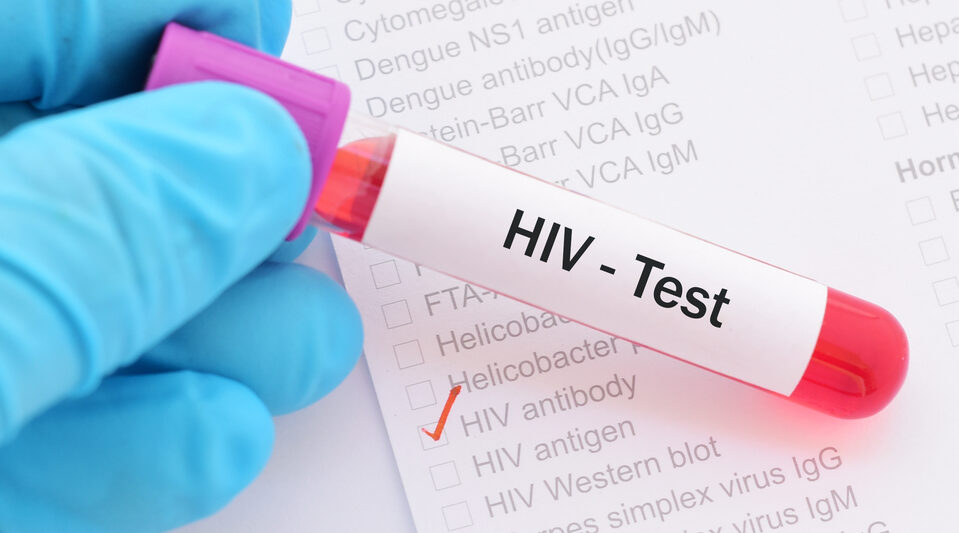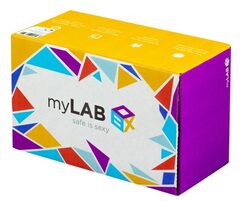HIV Infection

HIV Signs, Symptoms, Testing and Treatment
By Dr. Edmiston
HIV (Human Immunodeficiency Virus) is the virus responsible for AIDS. HIV does not directly cause death, but damages the immune system to such an extent that other infections, even common infections, can become fatal.
People with HIV virus in their body are referred to as "HIV positive." AIDS, which stands for acquired immunodeficiency syndrome, is a condition in which the immune system fails, allowing pathogens (referred to as opportunistic infections) and cancer to invade the body.
HIV-1 Symptoms
Many HIV-positive people are not aware that they are infected at first. In the early stages of infection (2-4 weeks) after contracting the virus approximately 80% of people will experience;
- Flu-like symptoms
- Fever,
- Sore throat,
- Headache, and
- Body rashes are all common in the early stages of HIV infection.
These symptoms are commonly dismissed as resulting from the flu or a cold and are followed by an asymptomatic period that can last for months or even years. During this time, the virus is replicating and damaging the immune system, but has not produced enough damage to cause symptoms. The virus is still active during this stage and can be transmitted to others.
Eventually, HIV causes enough damage to the immune system that other infections start to invade the body. At this advanced stage, symptoms become more frequent.
- Recurring fevers,
- Chills
- Mouth and genital sores,
- Memory loss and
- Persistent swelling of the lymph nodes are all common.
Not Your Symptoms Click Here >>
Testing
STD Tests
STD Testing at-Lab (Near Me)
STD Tests at-Home (Kits)
Fertility Tests
Women's Fertility Test at-Home
Health Tests
See All >>
Note: You can avoid Health Problems if your STI is Detected & Treated.
How HIV Works
HIV infects several different types of cells that make up the immune system. It is most commonly associated with T cells, but HIV can also infect macrophages and dendritic cells.
T cell numbers, commonly referred to as "cell count" drop as HIV progresses and can be used to follow the course of the infection. When a person's T cell count gets too low, their body loses its ability to fight off infection and eliminate cancer.
HIV-1 and HIV-2
HIV can be roughly divided into two subgroups, HIV-1 and HIV-2. HIV-1 viruses are related to viruses found in chimpanzees and gorillas while HIV-2 viruses are more closely related to viruses found in the endangered Sooty Mangabey. HIV-1 is found throughout the world while HIV-2 is primarily confined to West Africa.
HIV-1 is the primary virus responsible for AIDS and is the virus most people are referring to when they simply say "HIV." Though HIV-2 can cause AIDS, most people with the virus do not progress to full-blown AIDS and generally suffer few if any symptoms.
HIV-1 Diagnosis
The only way to know if a person has HIV is to test for it. Usually this is done with a blood test called an ELISA (Enzyme-Linked Immunosorbent Assay). If the ELISA is positive, suggesting that a person has HIV, a second test (usually a DNA test called PCR) is performed to confirm the diagnosis.
This two-step testing protocol is highly accurate, resulting in a false-positive (indicating a person has HIV when they really do not) rate of just 1 in 250,000. Modern HIV testing screens for HIV-1 and HIV-2.
HIV Screening
The CDC (Centers for Disease Control and Prevention) recommends that everyone between the ages of 13 and 64 be tested for HIV at least once as part of routine health screening. The CDC recommends yearly testing for individuals with the following specific risk factors.
- Men who have sex with men
- Anyone who has had sex with a known HIV-positive partner
- Injection drug users
- People who have been diagnosed with hepatitis, tuberculosis, or another STD
- People with multiple sexual partners
HIV Treatment
HIV can be treated, but not cured. Current therapies can slow the progression of the virus and stave off the development of full-blown AIDS, but they cannot rid the body of the HIV virus entirely. Drugs used to treat HIV are referred to as antiretrovirals (ARVs). More than one ARV is generally needed, however.
Using multiple ARVs is referred to as ART (Antiretroviral Therapy). ART has become highly effective, allowing people with HIV to live normal lifespans in most cases.
This only works, however, if ART is started soon after infection. This is one reason why it is important for at-risk individuals to undergo HIV testing regularly. ART must be continued for life to be effective.
Is HIV Curable?
No cure but treatment will reduce the amount of HIV in your body. (CDC)
Conclusion
To avoid being infected practice safe sex which includes using condoms and not engaging in sex with an infected person. If you have any of these symptoms you should be tested ASAP (as soon as possible) and sexual partners be contacted.
Resources
- https://www.cdc.gov/hiv/basics/testing.html CDC (Centers for Disease Control)
- https://www.hiv.gov/hiv-basics/staying-in-hiv-care/hiv-treatment/hiv-treatment-overview
- https://www.medscape.com/viewarticle/510883
- https://www.stdcheck.com/blog/the-differences-between-hiv-1-and-hiv-2/
- https://www.stdcheck.com/hiv-symptoms-in-men.php
About the Author
He is a Medical Doctor with a B.S. in Biology. His passions are making health science readable and enjoyable for the general public.
Note: To receive Proper Treatment, Testing is Required.
About STD Symptoms
Some people can be Symptomless (No Symptoms) of infection for Days, Months & even Years. Making it difficult to know if you have an STD without Getting Tested.
STDs do have Similar Symptoms so it might be difficult to tell which Individual STD you have Contracted. That is why a Panel Test for Multiple STDs is Recommended.
Why Get Tested?
 Disclaimer: Articles not intended to Diagnose, Treat, Cure or Prevent Diseases.
Disclaimer: Articles not intended to Diagnose, Treat, Cure or Prevent Diseases.
Infections | Education | Products | Testing


